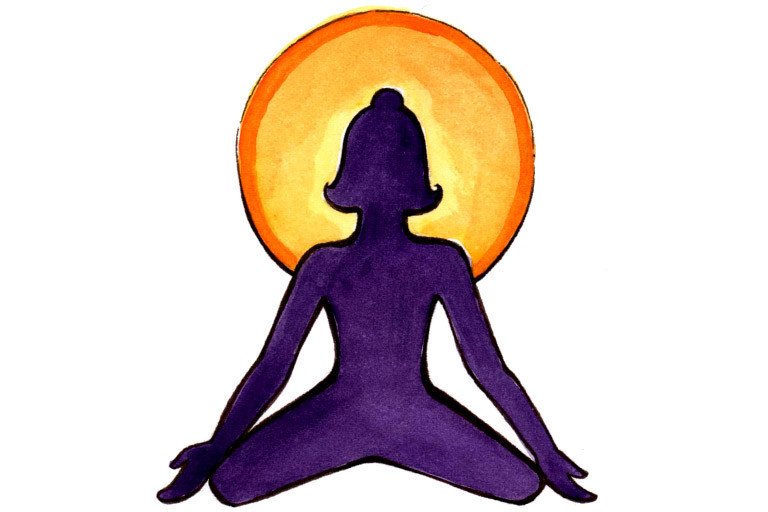Opening the Tricks of Ayurveda for a Balanced Way of living
Opening the Tricks of Ayurveda for a Balanced Way of living
Blog Article
Check Out the Profound Perks of Ayurveda and Enhance Your Day-to-day Live
Ayurveda, an old system of medication stemming from India, offers an extensive structure for boosting health via its alternative principles. As we check out the intricacies of Ayurveda, it comes to be obvious that its techniques hold the prospective to change daily routines right into routines of health and mindfulness, elevating the inquiry of exactly how one might start to integrate these ageless principles into modern-day life.
Understanding Ayurveda Principles
Although Ayurveda is commonly viewed as a different healing system, its concepts are deeply rooted in an all natural understanding of wellness and wellness. Central to Ayurveda is the belief that ideal health and wellness is achieved through an equilibrium of body, mind, and spirit, highlighting the interconnectedness of these aspects. This old technique identifies that each private possesses an one-of-a-kind constitution, or "prakriti," which influences their physical, mental, and emotional well-being.
Ayurveda advocates for tailored techniques to health and wellness, incorporating nutritional standards, way of living adjustments, and organic solutions customized to private needs. It urges making use of natural therapies that promote self-healing and enhance vitality. The practice also highlights the relevance of preventative treatment, concentrating on keeping balance instead of simply dealing with ailment.

The Three Doshas Explained
A fundamental element of Ayurveda is the concept of the 3 doshas, which are important energies that regulate mental and physical processes within the body. These doshas are Vata, Pitta, and Kapha, each standing for unique mixes of the 5 components: earth, water, air, fire, and room.
Vata, defined by air and area, is in charge of activity and communication. It controls bodily features such as respiration, nerve, and circulation impulses. Individuals with a predominant Vata dosha often tend to be imaginative, energetic, and versatile, but might likewise experience anxiousness and uneasyness when unbalanced.
Pitta, related to fire and water, symbolizes makeover and metabolic rate. This dosha manages body, metabolic rate, and digestion temperature - Ayurveda. Those with a solid Pitta visibility are commonly focused, passionate, and driven, yet they might become vulnerable to impatience and inflammation when out of balance
Kapha, created by planet and water, gives framework and security. It is linked to development, resistance, and lubrication within the body. Individuals with a dominant Kapha dosha are typically calm, nurturing, and individual, yet they might deal with sleepiness and accessory if their energy is unbalanced.

Recognizing these doshas is important for attaining consistency in both mind and body.
Advantages for Physical Health
Various benefits for physical health can be derived from the concepts of Ayurveda, which stresses a holistic technique to wellness. By concentrating on the balance of the three doshas-- Vata, Pitta, and Kapha-- Ayurveda promotes optimum performance of the body. This customized you can try here method allows individuals to customize their lifestyle, diet, and treatments according to their unique constitution and present imbalances.
One significant advantage of Ayurveda is its focus on preventive treatment. By integrating nutritional suggestions, organic supplements, and way of view it now living practices, Ayurveda seeks to maintain wellness instead than just dealing with disease. This positive stance can boost resistance and minimize the threat of persistent illness.
In addition, Ayurvedic practices such as yoga exercise and meditation add to boosted physical vigor and flexibility (Ayurveda). The usage of natural herbs and treatments can minimize common conditions, enhance digestion, and enhance cleansing procedures. Routine Ayurvedic treatments, such as Panchakarma, are created to rejuvenate the body and cleanse, promoting general physical health and wellness
Ultimately, Ayurveda encourages a balanced way of life, advertising not just physical health and wellness yet also a much deeper link between atmosphere, mind, and body, causing sustained health.
Enhancing Psychological Wellness
The holistic method of Ayurveda expands beyond physical health and wellness, considerably improving mental well-being. This old system of medication stresses the balance of the mind, body, and spirit, fostering emotional durability and psychological quality. Central to Ayurvedic philosophy is the concept of doshas, which are crucial energies that influence individual constitution and mindsets. By comprehending one's dosha, individuals can customize their way of living and nutritional options to advertise harmony within.
Ayurveda utilizes different strategies to support psychological wellness, consisting of natural solutions, reflection, and yoga. Adaptogenic herbs such as Ashwagandha and Brahmi are known to lower anxiety and improve cognitive function, while daily reflection practices improve mindfulness and psychological stability. Additionally, yoga works as an effective device to ease stress and anxiety and promote internal peace, including breath control and positions that align the body and mind.
Moreover, Ayurveda motivates a well balanced routine, stressing appropriate sleep, beneficial meals, and tension monitoring methods. By promoting self-awareness and encouraging a link to nature, Ayurveda cultivates a resistant mind, ultimately causing boosted mental health and a much deeper sense of gratification in life.
Incorporating Ayurveda Into Life
Integrating Ayurveda into day-to-day live can be a transformative trip towards alternative wellness. This old system of medication see this here stresses equilibrium in the mind, body, and spirit, supplying useful devices for enhancing health and vitality. To start, people can analyze their one-of-a-kind dosha-- Vata, Pitta, or Kapha-- to tailor way of life choices that straighten with their constitution.
Integrating Ayurvedic principles begins with mindful consuming. Consuming seasonal, locally-sourced foods that suit one's dosha promotes digestion and energy levels. In addition, exercising everyday regimens, or dinacharya, such as waking early, oil drawing, and meditation establishes a grounding structure for health.
Herbal treatments, assisted by an Ayurvedic practitioner, can even more sustain particular health issues. Incorporating yoga and breathing exercises motivates physical versatility and mental quality.


Final Thought
Including Ayurveda into day-to-day live supplies a comprehensive structure for attaining alternative health and wellness. By recognizing specific doshas and their impact on physical and mental health, individuals can customize their way of life selections efficiently. The benefits prolong past mere physical vitality, cultivating psychological resilience and mental clarity. Embracing practices such as mindful consuming, yoga, and natural solutions cultivates a balanced existence, enabling individuals to navigate life's challenges with enhanced grace and ease.
Central to Ayurveda is the belief that optimum health and wellness is accomplished with a balance of mind, body, and spirit, emphasizing the interconnectedness of these elements.Ayurveda supporters for individualized techniques to health and wellness, incorporating dietary guidelines, lifestyle modifications, and organic treatments tailored to specific needs.In addition, Ayurveda highlights the duty of the environment in wellness, recognizing that exterior aspects, such as periods, climate, and way of living options, can impact a person's health.The holistic technique of Ayurveda prolongs beyond physical health, dramatically improving psychological well-being.Incorporating Ayurveda into everyday life provides an extensive structure for attaining alternative wellness and well-being.
Report this page